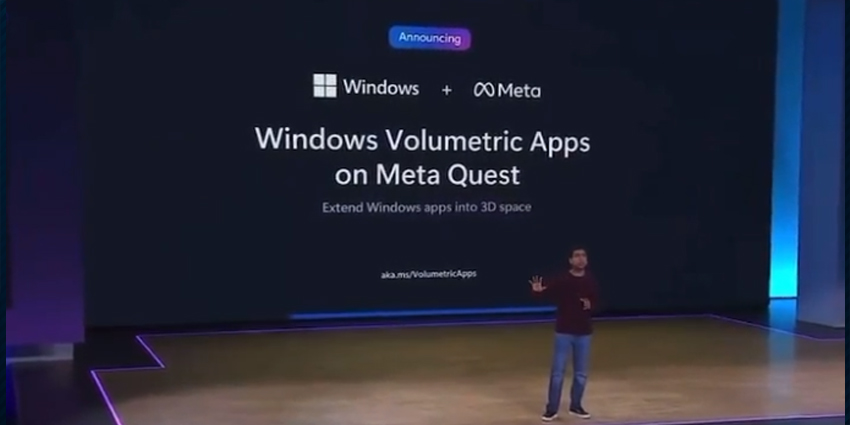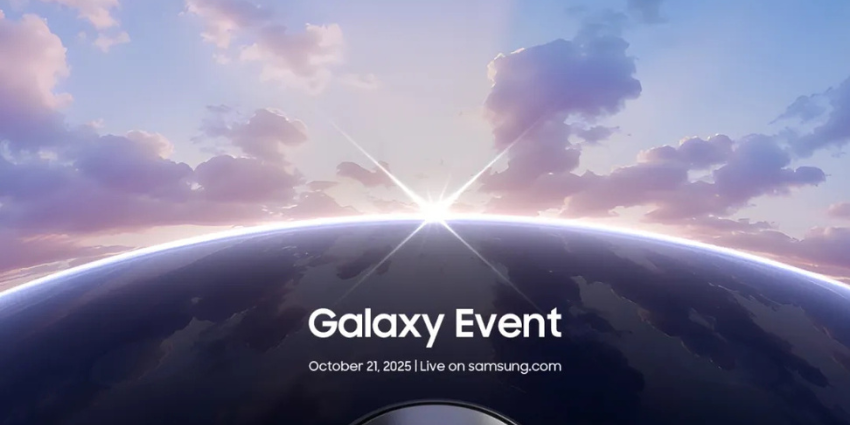This week at Microsoft Build, Pavan Davuluri, the firm’s Corporate Vice President of Windows and Devices, announced a fresh partnership with Meta to debut a volumetric workspace for the Quest portfolio.
The move seems to directly position the Quest as a competitor to Apple Vision Pro’s productivity goal. The news comes as Meta is testing Vision Pro-style features and is debuting new XR productivity hardware packages.
Davuluri added:
We’re deepening our partnership with Meta to make Windows a first-class experience on Quest devices. Windows can take advantage of Quest’s unique capabilities to extend Windows apps into 3D space.
The volumetric workspace development follows Microsoft’s accompanying AI updates. The firm notes how AI enables Microsoft to extend its product portfolio to Quest hardware and other emerging end devices.
Moreover, deep cloud integration enables Microsoft to continue support for varied end devices so that users can leverage 365 services on “any device, anywhere,” as stated in an official blog post.
Devices like Quest headsets – and other immersive wearables – present a new form factor and computing requirements. Therefore, productivity solution providers like Microsoft use cloud and AI technologies to offload computing requirements and streamline interaction to suit those using immersive wearables.
With the Meta partnership, Microsoft combines its AI/cloud services to introduce 3D Windows applications on the Quest lineup. Microsoft has supported its 365 services on the Quest for months, and the deeper integration will broaden the available use cases.
Microsoft is launching a volumetric API to assist XR developers in creating an increased number of productivity services on the Quest lineup.
Meta Quest 3 Gains Vision Pro-Style Features
The Meta Quest 3 now features the Layout feature, which was initially expected to be released alongside the device’s v60 update. However, it was quietly added to the store with a March 31st update.
It appears to mimic Apple’s approach to spatial computing interaction, similar to the Vision Pro’s immersive pop-ups. The Vision Pro aims to enhance traditional 2D desktop screens by turning desktop icons into interactive AR applications, allowing users to launch immersive pop-ups in their real-world environment.
Layout users can place and interact with AR/MR assets around them in a virtual space. Additionally, it allows users to scan their environment and objects to properly place AR/MR assets that can realistically interact with the real world. The application also provides tools for users to measure an object’s length and height so that AR/MR assets can exist realistically alongside immersive visuals.
Meta has been optimising the Quest 3 OS to improve the device’s immersive asset interaction. One highlighted feature, “Augment,” introduced at Connect 2023, allows Quest 3 users to interact with spatially anchored visualizations and place them in their real-world environment.
New Meta Quest for Education Product Due this Year
Meta has announced a new product release scheduled for later this year. The release will focus on increasing the use of XR headsets in classrooms and educational settings.
The company will introduce a new Meta Quest product range specifically designed for the education sector, with the goal of enhancing the adoption and understanding of XR technology among educational professionals.
Like the Meta Quest for Business product model launched last year, the education solution will provide teachers, trainers, and administrators with education-specific XR applications and management features. The new management features will allow teachers to utilize multiple Quest devices simultaneously in a classroom setting.
In a blog post, Meta’s President of Global Affairs, Nick Clegg, mentioned that education and training providers represent a significant market for Meta, with a growing number of developers creating apps targeted at this sector. Clegg also emphasized the potential to expand immersive education products on a much larger scale.
Although Meta has not yet confirmed the product’s name, Clegg stated that the name and product features will be disclosed in the coming months. Upon the product launch, Meta plans to make the education product available in markets supported by Quest for Business, catering to learners aged 13 and above.
Meta Connect is coming up later this year, and current news may suggest a deeper consideration of productivity use cases. Laying deep competition towards Apple’s walled garden.








